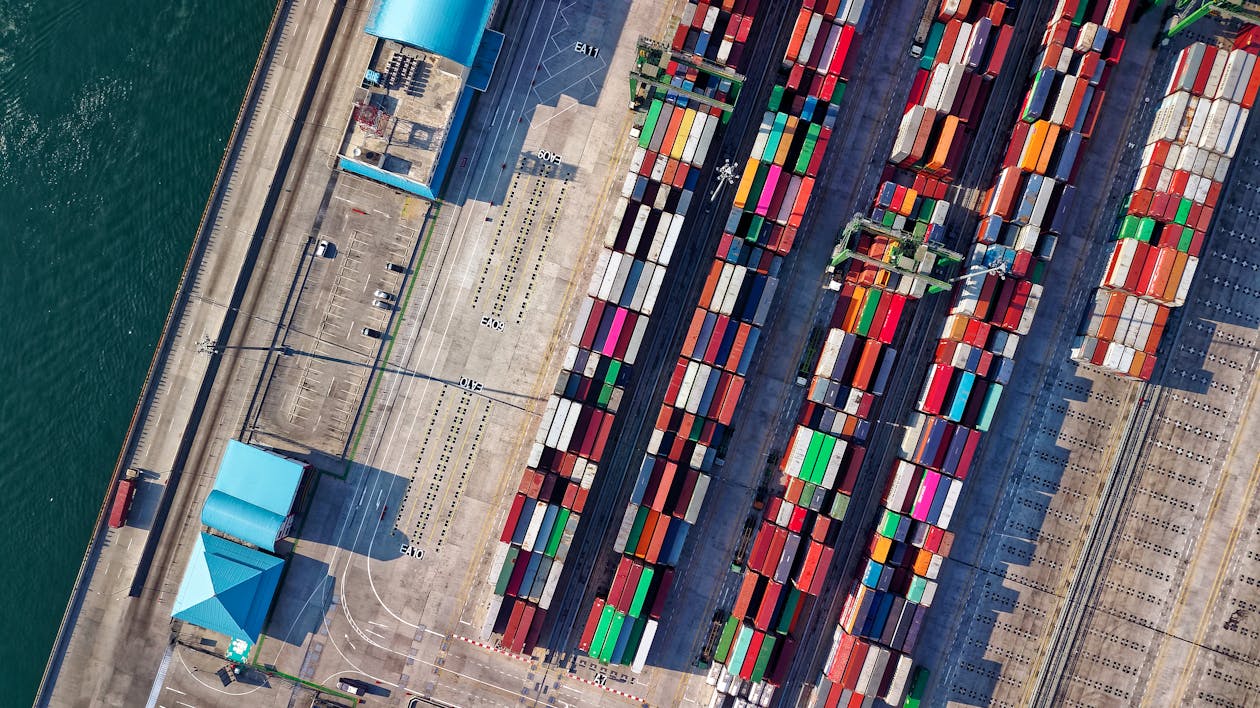 Tech and consumer demands are changing. Can you swiftly adapt to supply chain challenges?
Tech and consumer demands are changing. Can you swiftly adapt to supply chain challenges?
It’s no longer enough to plan and predict supply chain challenges. Today’s business space is filled with uncertainty caused by rapid changes in consumer behavior, global events, and emerging technology. According to this report, the global supply chain management market size accounted for USD 25.74 billion in 2022 and is projected to hit around USD 72.1 billion by 2032. Also, global disruptions to the supply chain cost organizations an average of 184 million U.S. dollars per year according to a 2021 survey. Agile supply chain management enables businesses to anticipate, respond, and capitalize on market changes, providing a competitive edge in an era where gaining any advantage possible is critical to success.
At the heart of agile supply chain management lies technology. Tech innovations are granting businesses a seamless flow of information, increasing the speed of decision-making, and providing the agility needed to respond rapidly to market shifts and disruptions. In this article, we will speak about the key technologies driving agile supply chain management, and discuss the challenges and considerations associated with their execution.
Key technologies for agile supply chain management
 Supply chain management can’t be agile without technology
Supply chain management can’t be agile without technology
For organizations building agile supply chains that can adapt and thrive in the face of constant change, technology is critical. These technology innovations currently in use and their benefits include:
- Real-time tracking and monitoring of assets with the Internet of Things (IoT):
- Providing real-time visibility, IoT enables businesses to track and monitor their assets’ locations, conditions, and status with sensors and connected devices, allowing for more informed decision-making and quicker response to disruptions.
- Predictive maintenance for equipment health: By monitoring machine data, businesses can use IoT to anticipate potential failures and schedule maintenance proactively, reducing downtime and enhancing overall operational efficiency.
- Data-driven decision-making: Analytics derived from data gained from the use of IoT devices enable proactive identification of trends, optimization of routes, and improved resource allocation, contributing to a more agile and responsive supply chain.
- Demand forecasting and predictive analytics with AI and ML algorithms: By analyzing historical data and market trends to predict future demand accurately, businesses can optimize inventory levels, reduce stockouts, and minimize excess inventory, fostering a more agile response to changing market conditions.
- Intelligent routing and optimization with AI algorithms: By using innovations such as battery intelligence software which considers factors like traffic, weather, and delivery constraints, AI algorithms create more efficient and cost-effective transportation, enhancing agility by reducing delivery times and improving overall supply chain performance.
- Risk management and mitigation with AI and ML: By analyzing data from various sources, AI and machine learning anticipate potential disruptions, enabling businesses to implement contingency plans and maintain operational continuity proactively.
- Transparency and traceability in the supply chain with blockchain: Bringing an immutable and transparent record of transactions, blockchain tech reduces delays, errors, and fraud, creating a more agile and trustworthy supply chain.
- Smart contracts for automated and secure transactions powered by blockchain: Through automated and secure transactions, smart contracts streamline processes, reduce paperwork, and ensure that contractual agreements are executed seamlessly, contributing to a more agile and efficient supply chain.
- Counterfeit prevention driven by blockchain: By creating a tamper-proof record of products’ journey from manufacturing to delivery, blockchain not only protects brand reputation but also ensures the delivery of genuine goods, enhancing the supply chain’s agility by reducing counterfeiting risks.
- Automated warehouses and fulfillment centers: Robotics and automation technologies streamline warehouse operations by automating picking, packing, and sorting tasks. This increases efficiency, reduces errors, and accelerates order fulfillment, contributing to a more agile and responsive supply chain.
- Autonomous vehicles: Integrating autonomous vehicles in transportation fleets guides modern fleet managers’ desires to increase agility by non-dependency on human drivers and optimizing routes. This is further explored in our comprehensive fleet manager guide, highlighting how these vehicles can operate continuously, minimizing delivery times, and improving overall supply chain efficiency.
- Robotics in manufacturing processes: Robotics in manufacturing processes contribute to agile production capabilities. Automated assembly lines and robotic manufacturing enable rapid adjustments to production volumes and product variations, ensuring a swift response to changes in demand.
- Scalability and flexibility for data storage: Cloud computing provides scalable and flexible storage solutions, accommodating the growing volume of data generated in the supply chain.
- Collaboration and communication across the supply chain: Cloud-based collaboration tools facilitate seamless communication and information sharing among supply chain partners. This fosters collaboration, reduces delays, and enables quick decision-making, enhancing overall supply chain agility.
- Real-time access to information: Cloud computing enables real-time access to critical information anywhere in the world. This accessibility ensures that supply chain professionals have up-to-date information at their fingertips, allowing for agile decision-making and response to changing conditions.
Challenges of leveraging tech innovations for agile supply chain management

Leveraging tech innovation for agile supply chain management can be difficult.
While tech innovations deliver the promise of improved efficiency and increased speed for agile supply chain management, some hurdles arise while adopting these tech innovations. These key challenges include:
- Integration of technologies: While integrating tech solutions, different platforms, systems, and applications may not automatically communicate with each other, leading to silos of information and inefficiencies. Overcoming this challenge requires the development of compatible systems and collaboration among technology providers. Also, businesses must consider the scalability and customization capabilities of the chosen technologies to accommodate changing requirements without significant disruptions.
- Cybersecurity risks: With the interconnected nature of supply chain technologies and the increased digitization of the supply chain, businesses must implement robust cybersecurity measures to protect against data breaches, ransomware attacks, and other malicious activities. Also, businesses must ensure their technology implementations adhere to regional and industry-specific regulations to avoid legal and reputational risks.
- Initial investment and ROI considerations: While the potential benefits of tech innovations are substantial, the upfront investment required is high. Businesses must weigh the upfront capital investment required for implementing new technologies against the long-term operational savings and efficiency gains. There is also a need to set clear benchmarks, key performance indicators (KPIs), and a robust measurement strategy to showcase the benefits of technology investments.
- Employee training and change management: Introducing new technologies into the supply chain environment demands a cultural shift and comprehensive training programs. Investing in training programs and upskilling initiatives is needed to build a workforce that is good at using these tools effectively. Also, clear communication, involvement of employees in the decision-making process, and a supportive change management strategy are vital to creating a culture that embraces technological advancements.
Future trends in tech-driven supply agile chain management
 Agile supply chain management is being transformed by technological innovation
Agile supply chain management is being transformed by technological innovation
The future of tech-driven supply chain management promises a supply chain ecosystem that is more agile, connected, and environmentally conscious. Embracing these trends will help businesses build agile, resilient, and environmentally conscious supply chains, ensuring they stay at the forefront of the ever-evolving industry. The future trends set to redefine how businesses manage their supply chains include:
- Predictive analytics and prescriptive insights: The future of supply chain management lies in the ability to predict and prescribe actions based on data analytics. Also, digital twins, virtual replicas of physical supply chain systems, will leverage real-time data and analytics to simulate and optimize supply chain processes, providing deeper insights into potential disruptions and enabling proactive decision-making.
- 5G technology for faster and more reliable communication: The deployment of 5G technology in supply chain management with high-speed, low-latency connectivity will facilitate real-time data exchange, enabling instantaneous communication between devices, warehouses, and stakeholders across the supply chain. Also, this will increase the ability of IoT devices to provide more accurate and timely information.
- The continued evolution of AI and ML algorithms: As AI becomes more integrated into supply chain operations, businesses will seek algorithms that not only provide accurate predictions but also offer transparent insights into how decisions are reached. Also, AI algorithms will continuously adapt to changing conditions, such as market demand fluctuations, disruptions, and geopolitical events, to optimize routes, inventory levels, and overall supply chain efficiency.
- Sustainable and eco-friendly supply chain technologies: The future of supply chain management will witness a shift towards circular supply chains, emphasizing sustainability and waste reduction. Companies will adopt practices that promote the recycling and repurposing of materials, creating closed-loop systems that minimize environmental impact. Also, sustainable transportation solutions and the integration of green technologies will reduce carbon emissions and contribute to cost savings and regulatory compliance.
- Blockchain for supply chain transparency: The use of blockchain technology will enable the recording of every transaction and movement, ensuring a transparent and secure supply chain that is resistant to fraud and counterfeit practices.
Navigating the future with tech-driven agile supply chain management
Small startup or global enterprise – tech-driven agile supply chain is both exciting and critical.
The roadmap to a tech-driven, agile supply chain involves strategic integration, a commitment to data security and privacy, a thoughtful approach to investment and ROI, and a focus on employee training and change management. It is also clear that the future is now and businesses leveraging technology to enhance agility will be leaders in the ever-changing world of supply chain management.
Photo credits: Pexels
Author’s Bio
Isaac Adewumi is a dedicated storyteller with a relentless passion for crafting perfect words. His days are immersed in creating engaging, easy-to-understand copy to drive leads, user onboarding, and customer retention for B2B, B2C, and SaaS brands.
Under surveillance, you’d catch him deeply researching client briefs, pondering creative blog intros, and writing compelling articles and email copy.
Inspired by marketing legends like Chase Dimond, he immerses himself in endless marketing copy, poetry writing, solo chess sessions, and Fantasy Premier League videos—all accompanied by the soothing tones of slow classical music on Spotify. You can connect with him on LinkedIn: https://www.linkedin.com/in/isaac-adewumi-47ab77148/
